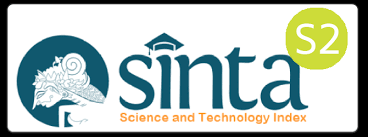Vitamin D Status and its Correlation with Disease Severity among Patients Presented with Major Depressive Disorders in a Tertiary Health Care Hospital in South India
Abstract
Vitamin D level has a significant inverse correlation with depressive symptoms. The associa- tion of vitamin D level with unipolar or bipolar disorders are inconclusive among Indians. This study was aimed to find the severity of major depressive disorders and their correlation with vitamin D status. A cross-sectional study was conducted among patients (15-65 years old) diagnosed clinically with a major depressive disorder with a known serum 25 (OH) D levels. Mild, moderate, and severe depressive disorders were categorized into groups like vitamin D sufficient (≥75 nmol/L), insufficient (51-74 nmol/L), and deficient (<50 nmol/L). The data were analyzed for correlation. A total of 83 patients (33 males and 50 females) were included. Among the total, only four patients (4.8%) had bipolar disorder, while 79 patients (95.1%) had the unipolar disorder. Three bipolar patients and 68 unipolar patients had 25(OH)D levels below normal. Correlation analysis between the severity of disease and 25(OH)D level found a non-linear negative correlation in males (r= -0.07595, p= 0.7123) and positive correlation in females (r= 0.04234, p= 0.7823). However, correlation of age with 25(OH)D level was positive in males (r= 0.4151, p= 0.035) and negative in females (r= -0.1553, p= 0.3085). A negative correlation was found between the severity of the unipolar disorder and serum 25(OH)D levels in males. Therefore, male patients presented with the unipolar depressive disorder may consider vitamin D supplementation
Keywords
Full Text:
PDFReferences
Buell JS, Dawson-Hughes B. Vitamin D, and neurocognitive dysfunction: preventing “D” decline?. Molecular Aspects in Medicine. 2008;29(6):415-422.
Holick MF. Vitamin D: importance in the prevention of cancers, type 1 diabetes, heart disease, and osteoporosis. American Journal of Clinical Nutrition. 2004;79(3):362-371.
Ritu G, Gupta A. Vitamin D Deficiency in India: Prevalence, Causalities and Interventions. Nutrients. 2014;6: 729–775.
Milaneschi Y, Hoogendijk W, Lips P, Heijboer AC, Schoevers R, van Hemert AMet al. The association between low vitamin D and depressive disorders. Molecular Psychiatry. 2014;19(4), 444-451.
Parker GB, Brotchie H, Graham RK.Vitamin D and depression. Journal of Affection Disorders. 2017;208:56-61
Anglin RE, Samaan Z, Walter SD, McDonald SD. Vitamin D deficiency and depression in adults: systematic review and meta-analysis. British Journal of Psychiatry. 2013;202:100-7.
Hoogendijk WJ, Lips P, Dik MG, Deeg DJ, Beekman AT, Penninx BW. Depression is associated with decreased 25-hydroxyvitamin D and increased parathyroid hormone levels in older adults. Archives of General Psychiatry. 2008;65:508-12.
Milaneschi Y, Hoogendijk W, Lips P, Heijboer AC, Schoevers R, van Hemert AM, et al. The association between low vitamin D and depressive disorders. Molecular Psychiatry. 2014;19:444-51.
Józefowicz O, Rabe-Jabłońska J, Woźniacka A, Strzelecki D. Analysis of vitamin D status in major depression. Journal of Psychiatric Practice. 2014;20:329-37.
Marsh WK, Penny JL, Rothschild AJ .Vitamin D supplementation in bipolar depression: A double blind placebo controlled trial. Journal of Psychiatric Research. 2017;95:48-53.
Woo YS, Kim S, Jeong JH, Jung YE, Kim MD, Bahk WM. Vitamin D Deficiency/Insufficiency among Inpatients with Depressive Symptoms. Clinical Psychopharmacology and Neuroscience. 2019;17:121-124.
Lehman A. JMP for basic univariate and multivariate statistics: A Step-by-step guide. SAS Press, Cary, NC, US. 2005, p. 123
Lee DM, Tajar A, O’Neill TW, O’Connor DB, Bartfai G, Boonen S, et al.Lower vitamin D levels are associated with depression among community-dwelling European men. Journal of Psychopharmacology. 2011; 25(10):1320-8.
Högberg G, Gustafsson SA, Hällström T, Gustafsson T, Klawitter B, Petersson M. Depressed adolescents in a case-series were low in vitamin D and depression was ameliorated by vitamin D supplementation. Acta Paediatrics. 2012; 101(7):779-83.
Vaziri F, Nasiri S, Tavana Z, Dabbaghmanesh MH, Sharif F, Jafari P . Randomized controlled trial of vitamin D supplementation on perinatal depression: in Iranian pregnant mothers. BMC Pregnancy and Childbirth. 2016;16:239.
Eyles DW, Smith S, Kinobe R, Hewison M, McGrath JJ. Distribution of the vitamin D receptor and 1 alpha-hydroxylase in human brain. Journal of Chemical Neuroanatomy. 2005;29(1):21-30.
Kim DH, Meza CA, Clarke H, Kim JS, Hickner RC.Vitamin D and Endothelial Function. Nutrients. 2020;12(2):575.
Garcion E, Wion-Barbot N, Montero-Menei CN, Berger F, Wion D. New clues about vitamin D functions in the nervous system. Trends in Endocrinology and Metabolism. 2002; 13:100-5
Naveilhan P, Neveu I, Wion D, Brachet P. 1,25-Dihydroxyvitamin D3, an inducer of glial cell line-derived neurotrophic factor. Neuroreport. 1996;7:2171–2175.
Musiol IM, Feldman D. 1,25-dihydroxyvitamin D3 induction of nerve growth factor in L929 mouse fibroblasts: Effect of vitamin D receptor regulation and potency of vitamin D3 analogs. Endocrinology. 1997;138:12–18.
Neveu I, Naveilhan P, Baudet C, Brachet P, Metsis M. 1,25-dihydroxyvitamin D3 regulates NT-3, NT-4 but not BDNF mRNA in astrocytes. Neuroreport. 1994;6:124–126.
Yatham LN, Liddle PF, Shiah IS, Scarrow G, Lam RW, Adam MJ, et al., Brain serotonin2 receptors in major depression: a positron emission tomography study. Archives of General Psychiatry. 2000 Sep; 57(9):850-8.
Howland RH, Thase ME. Affective disorders: Biological aspects. In: Millon T, Blaney PH, Davis RD, editors. Oxford textbook of Psychopathology. New York: Oxford University Press; 1999.
Patrick RP, Ames BN. Vitamin D and the omega-3 fatty acids control serotonin synthesis and action, part 2: relevance for ADHD, bipolar disorder, schizophrenia, and impulsive behavior. FASEB Journal. 2015;29(6):2207-22
Kohler O, Krogh J, Mors O, Benros ME. Inflammation in depression and the potential for anti-inflammatory treatment. Current Neuropharmacology. 2016; 14(7):732-42.
Mazahery H., von Hurst P.R. Factors Affecting 25-Hydroxyvitamin D concentration in response to vitamin D supplementation. Nutrients. 2015;7:5111–5142
DOI: https://doi.org/10.15416/pcpr.v7i1.35041
Refbacks
- There are currently no refbacks.








